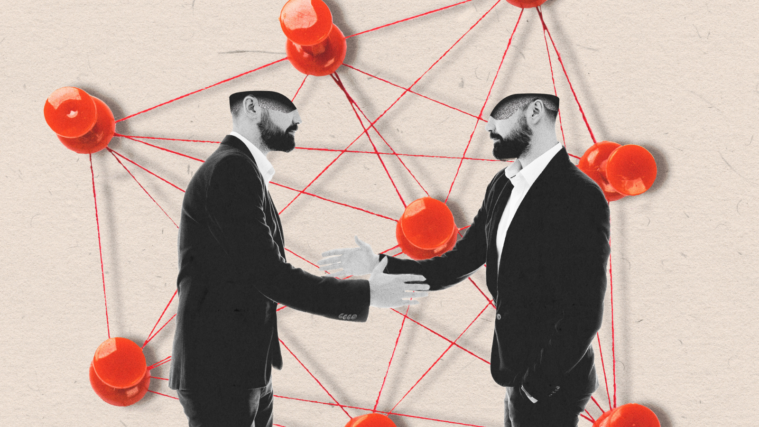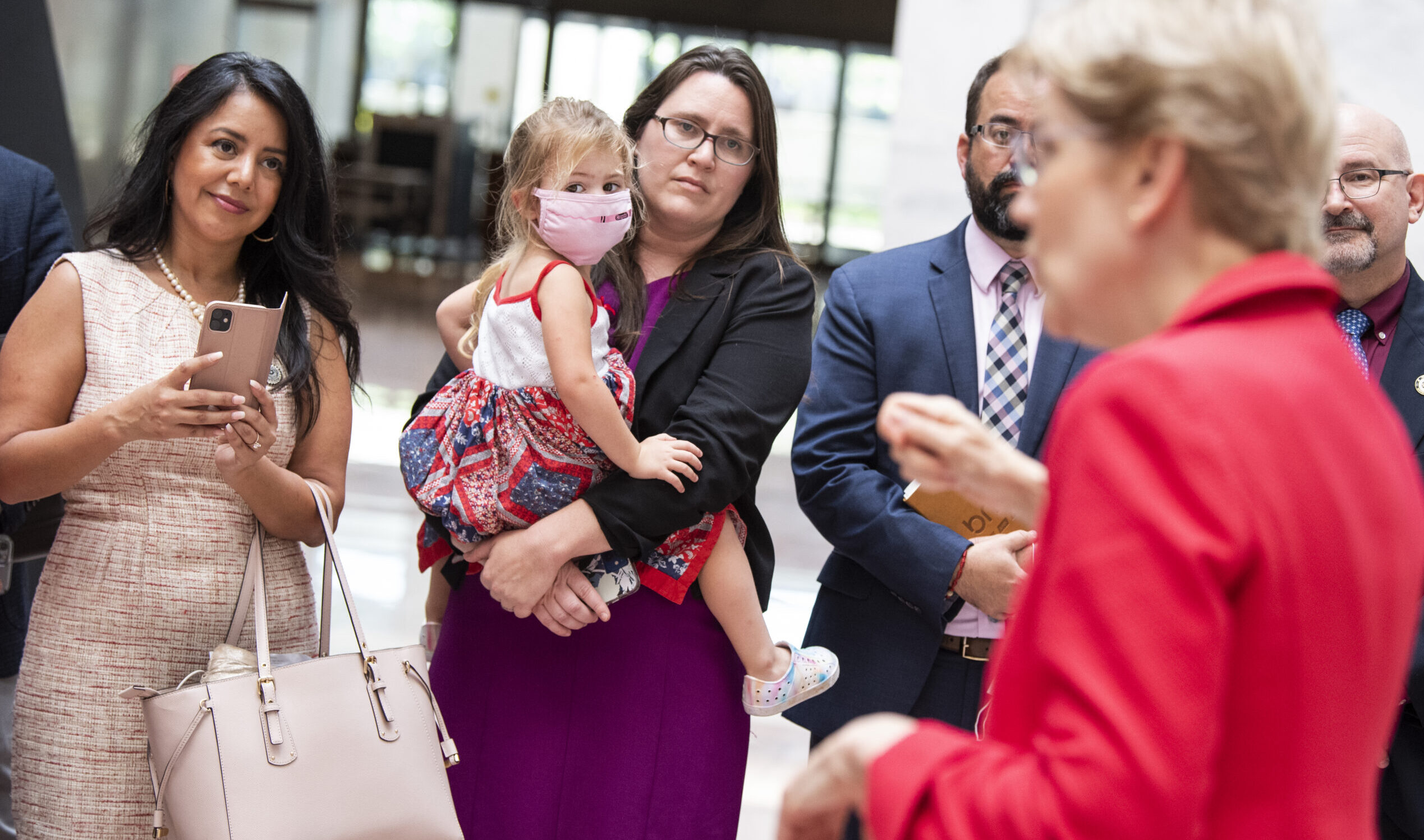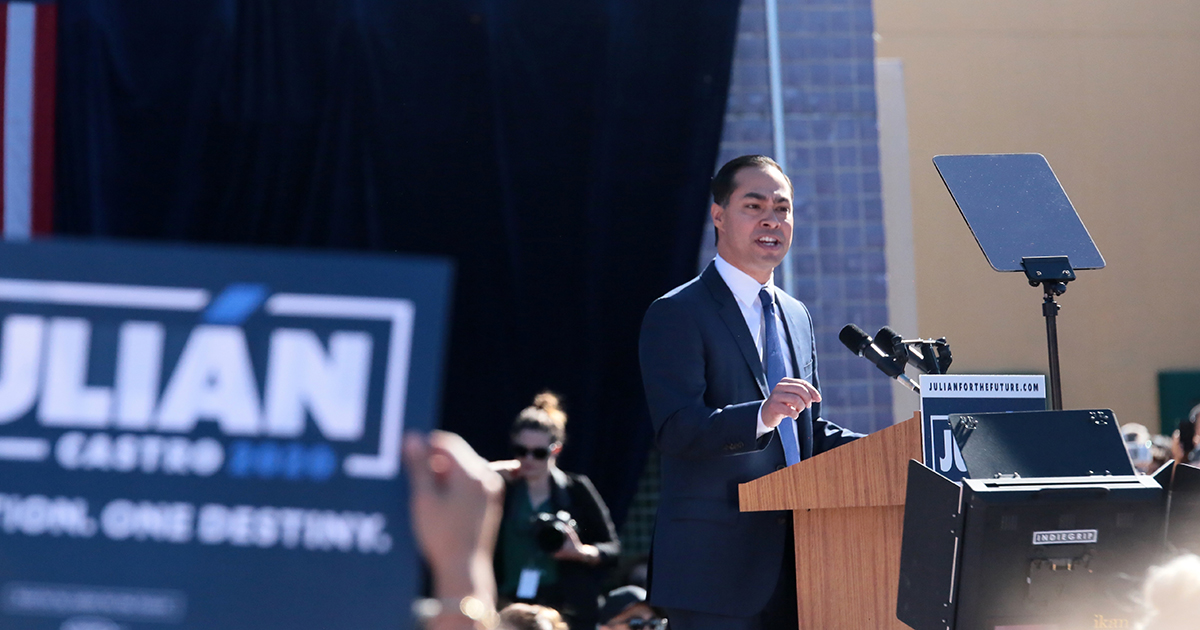
One Candidate, One Destiny: Julián Castro’s Inevitable Presidential Bid
Julián Castro has plotted his political trajectory with great care and calculation. Can that work in the Trump era?
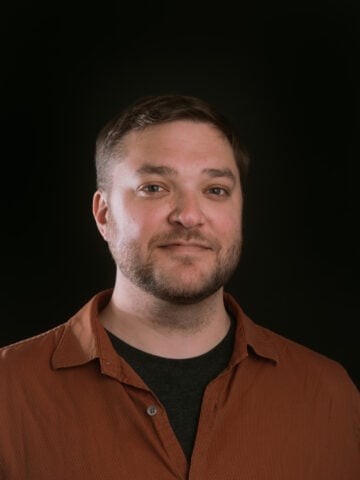
Above: Julián Castro announced his 2020 presidential bid on January 12 in San Antonio.
If the gods of political narrative divined the outcome of presidential primaries, Julián Castro could very well be the Democratic nominee in 2020. But narrative does not a nominee make. Just ask Marco Rubio.
Yes, Castro is an ambitious, relatively young politician, long held up as a beacon of the Democratic Party’s diverse future. He’s from Texas, which could be a battleground state for the first time in decades. And as a direct challenge to Trump’s presidency, his personal story — raised with his twin brother by a popular Chicana activist mother, grandson of a Mexican immigrant, a hometown hero from San Antonio’s West Side who went to Stanford and Harvard Law and then came back to serve his community — could be all the more powerful.
But Castro’s political trajectory seems engineered to carry on the center-left project set forth by Obama, Hillary Clinton and the Center for American Progress — to become the Emerging Democratic Majority incarnate. And unforeseen complications like Donald Trump and an intra-party brawl among 20-something Democrats all trying to prove their leftie bona fides present unforeseen challenges for his candidacy.
Castro rose to prominence at the height of Obama-era optimism. It was a time when Democrats were coming to fully embrace the idea that changing demographics were destiny. If they could just catalyze the rapidly growing Latino population, the Democratic Party was guaranteed to hold on to the White House for decades to come.
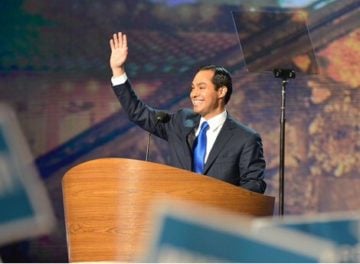
Elected as the youngest mayor of San Antonio in 2009, Castro was quickly dubbed by national media to be the “Post-Hispanic Hispanic politician” and the “Hispanic Barack Obama.” And in many ways, he’s been running for president ever since. His star quickly rose when he was given the prime speaking slot at the 2012 Democratic convention, the same spot that had helped Obama ascend to the national stage back in 2004. Then, in 2014, Obama brought him on as Housing and Urban Development Secretary. From there, Castro shot to the top of the vice president shortlist on Hillary Clinton’s ill-fated 2016 campaign.
It’s easy to imagine an alternate world in which he is in a perfect position to succeed President Hillary Clinton in 2024 after serving for dutifully in a top cabinet position (heck, maybe even getting elevated to vice president for her second term).
But that reality was never realized. The American political terrain has become unrecognizable since he was deemed the crown prince of the Democratic Party six years ago. And yet Castro has kept his political blinders firmly affixed on the White House. He and his twin brother, Joaquin, who represents a U.S. House seat in San Antonio, have plotted their careers with great care and calculation — sometimes to the point of near-parody.
As Politico reported in August 2017, back when Joaquin was still being pressured to run for statewide office: “The brothers serve as each other’s top strategists, and they’ve agreed that Julián’s next political move takes primacy for now. One worry is that a Joaquin loss for governor … would make the Castros look like losers. The other is that if Joaquin happened to pull off an upset, it would distract attention from Julián, potentially complicating his path to the White House.”
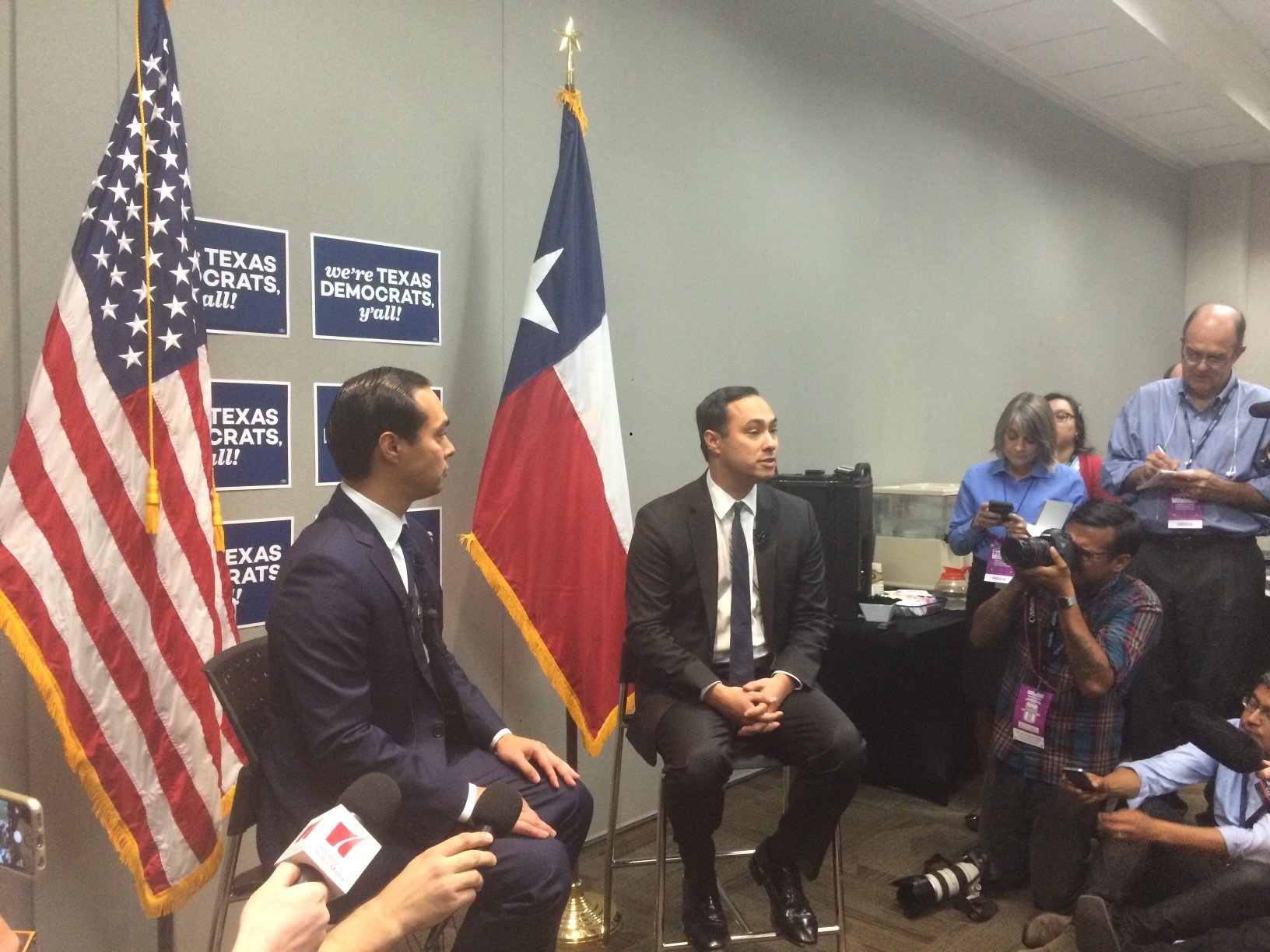
Castro, along with many other potential presidential candidates, is a symptom of the Democrats’ long-standing insistence that any and all politicians with a degree of promise should be plucked from the pasture and made to run for president. This is perpetuated by entrenched party leadership, an overzealous base and a hype-hungry political media industry eager for fresh faces, new ideas and storylines.
The build-up to his official presidential campaign launch — which took place January 12 in San Antonio — often felt formulaic, mechanical and wrought with inevitability.
He made the trips to Iowa and New Hampshire for state fairs and Democratic dinners. He wrote a political autobiography called An Unlikely Journey: Waking Up from My American Dream. He made the rounds on the cable news talk shows. He convened a meeting of the liberal monied elites. And then he launched in December his perfunctory presidential “exploratory” committee to explore the prospects of the thing that he had definitely already decided to do — complete with a painfully canned video address. Then he went on Stephen Colbert’s late-night show with his brother to further tease out his presidential ambitions.
Instead of running for statewide office in Texas in 2018 — the most consequential election cycle of his career — Castro opted for the safety of the sidelines.
He’s done this all, because, as consultants will tell you (for a modest fee), it’s just what you do when forming the fodder for a presidential bid. You can see the fingerprints of focus groups and PR consultants on his newly unveiled campaign slogan: “One Nation. One Destiny.”
So Castro surprised absolutely no one when he made it formal last Saturday at San Antonio’s Plaza Guadalupe, just blocks from where he grew up. “I’m running for president because it’s time for new leadership. Because it’s time for new energy. And it’s time for a new commitment to make sure that the opportunities I’ve had are available for every American,” he pronounced to a hometown crowd of a couple thousand. “In the years to come, we must go forward as one nation, working toward one destiny. And that destiny is to be the smartest, the healthiest, the fairest and the most prosperous nation on earth. … Demanding anything less is a failure of vision. Achieving anything less is a failure of leadership.”
Of course, his bid could gain traction. Castro could quite possibly be the sole Latino candidate, he has executive experience as a mayor and cabinet secretary and he’s got a strong story to build a platform on. In his announcement speech, he embraced all the latest cutting-edge policy ideas and rhetoric — from Medicare for All and a Green New Deal to free college and sweeping criminal justice reform. But that will probably be par for the course for any progressive 2020 candidate.
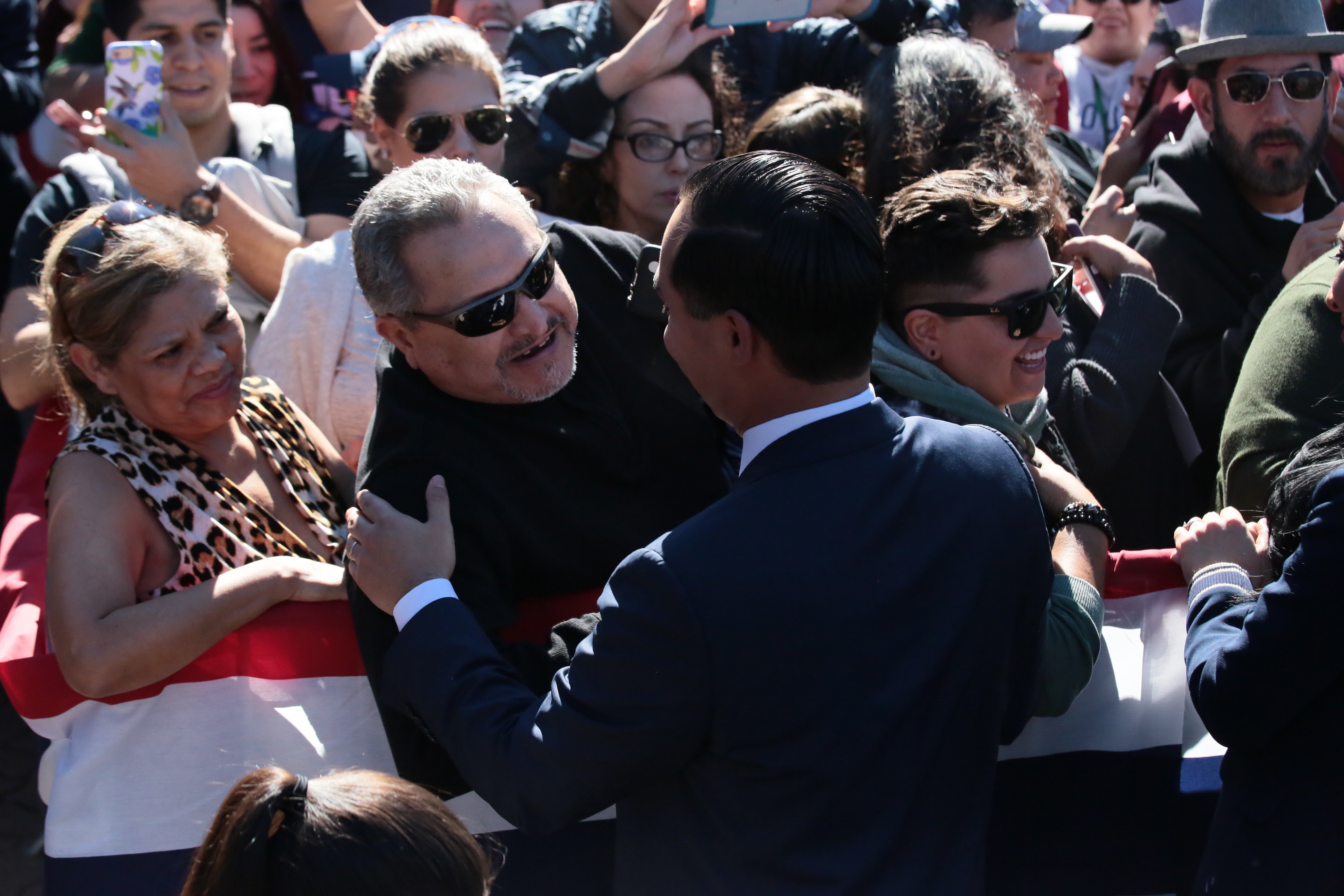
Castro’s penchant for careful calculation may make it that much harder for him to resonate with voters in this current political moment. He determined that a Texas statewide bid in 2018 by either him or his brother was too risky. Then came Beto O’Rourke, a previously unknown back-bench congressman from El Paso whose decidedly uncalculated, ragtag campaign against Ted Cruz ignited a national following.
Instead of running for statewide office in Texas in 2018 — the most consequential election cycle of his career — Castro opted for the safety of the sidelines. He launched a PAC called Opportunity First that ostensibly existed to support up-and-coming progressives. The PAC spent most of its money on consultants, fundraising and flying Castro around the country.
Soon, Julián found himself playing the role of supporting actor to O’Rourke as the El Paso congressman livestreamed their road trip along the border from the driver’s seat. At a stop in the border city of Eagle Pass, a pavilion on the lake overflowed with hundreds of Beto supporters. After the rally, a long line of people gathered to take pictures with O’Rourke. As one attendee told me, Castro and his brother stood off to the side with some other local elected officials — there was no line to take photos with them.
O’Rourke took a risk and ran an unconventional campaign. And while he narrowly lost to Cruz, pundits and operatives alike now consider him to be a top 2020 contender. Perhaps Castro, who is currently polling between 0 and 2 percent, seems stale because he is inevitably being compared to O’Rourke, who is still riding the wave of hype surrounding his viral, freewheeling campaign.
Nearly a decade after rising to the national stage, Castro has taken off the bubble wrap that kept his presidential ambitions in pristine condition for all these years.
He’s finally ready for primetime. But politics is a game of opportunity. Has Castro missed his?

